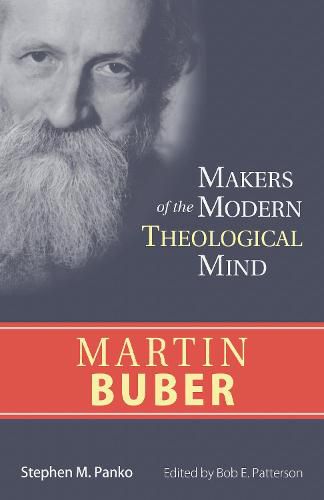Readings Newsletter
Become a Readings Member to make your shopping experience even easier.
Sign in or sign up for free!
You’re not far away from qualifying for FREE standard shipping within Australia
You’ve qualified for FREE standard shipping within Australia
The cart is loading…






Because Martin Buber lived, there is more love in the world than there would have been without him. And for him that was the reason above all others for the gift of life. -New York Times
The writings of the Jewish religious thinker, Martin Buber (1878-1965), have had a significant influence on a number of Christian theologians. In this overview, Stephen Panko provides a penetrating insight into the many facets of Buber and his work. Buber’s idea of true life as relation was expressed in his famous book I and Thou, in which he asserted that we can only become a personal I when we treat others, nature, and God as a Thou rather than an impersonal it. Buber’s work became widely known in Christian circles and his concept of I-Thou relationships was adopted by Christian theologians Karl Barth, Emil Brunner, Rudolf Bultmann, Dietrich Bonhoeffer, and Friedrich Gogarten among others.
$9.00 standard shipping within Australia
FREE standard shipping within Australia for orders over $100.00
Express & International shipping calculated at checkout
Because Martin Buber lived, there is more love in the world than there would have been without him. And for him that was the reason above all others for the gift of life. -New York Times
The writings of the Jewish religious thinker, Martin Buber (1878-1965), have had a significant influence on a number of Christian theologians. In this overview, Stephen Panko provides a penetrating insight into the many facets of Buber and his work. Buber’s idea of true life as relation was expressed in his famous book I and Thou, in which he asserted that we can only become a personal I when we treat others, nature, and God as a Thou rather than an impersonal it. Buber’s work became widely known in Christian circles and his concept of I-Thou relationships was adopted by Christian theologians Karl Barth, Emil Brunner, Rudolf Bultmann, Dietrich Bonhoeffer, and Friedrich Gogarten among others.